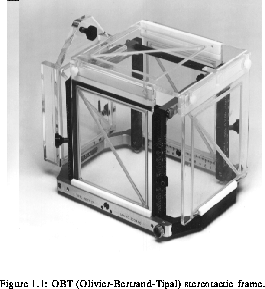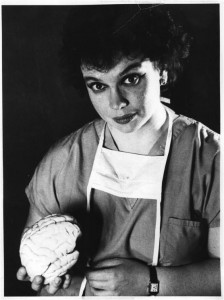Beneath the University hospital that was associated with the medical school I attended in Amiens, France there was a seemingly infinite maze of interlocking concrete passages that connected all of the different “pavilions” (“units”) of the hospitals. I remember how my feet echoed as I walked along those corridors.
They had been constructed during World War II, to bring the hospital safely underground in case of German Bombing.
One day I was walking in step with all the other surgeons, echoing together, with a regular beat. Read more on They Don’t Need To Understand — They Are Peasants!…
Filed under Alternative Medicine, Diagnosis, Doctors, News, Research by on Feb 5th, 2018. Comment. ![]()
I was traveling the United States looking for a graduate level training job in neurosurgery. Women were not as accepted in medicine as they are now. Personally, I think it is at least in part because medicine was still considered a serious profession. Most of the places I interviewed had never hired a woman as a neurosurgery resident before. They would ask me behind closed doors (with no witnesses) if I planned to have a family or practice part time and thus compromise the investment in time and money they planned to make in me.
Oy!
I had met Mother Rocky, the great Jewish matriarch of a hunk of St. Louis, on a flight to that august city, where I had lucked out by getting a free upgrade to first class.
She seemed to think I would have some interest in an arranged marriage. Read more on The Part of Being Female I Still Wrestle With…
Filed under News by on Apr 3rd, 2014. Comment. ![]()
It’s hard for many who know me to believe – and it is even hard for me to believe – but from a very early age, I loved the brain.
Looking at my professional path, one can see that everything I’ve done has been related to the brain (with a few side trips, of course). I tell most people now that my change from neurosurgery that ultimately landed me in psychopharmacology was a result of personal maturation. After all, I once believed that most medical problems had mechanical, or near mechanical solutions.

The OBT (Olivier-Bertrand-Tipal) frame -- Conventional stereotaxy makes use of a frame attached to the patient's head.
I once believed that a hematoma drained, using squishy squeegie apparatus, just like my mother of blessed memory would have used to baste the Thanksgiving turkey.
The truth of the matter is that I had become convinced slowly that a brain, once touched or handled, changed in immeasurable ways. My own dexterity seemed piteously inferior to the task of brain manipulation. It was not fear — at least I do not think it was. It was more a sort of reverence for the complexity of that which I struggled to lay my hands upon – literally to manipulate. Read more on Messing Around With The Brain Is Serious Business…
Filed under Brain Surgery by on Feb 2nd, 2011. Comment. ![]()
She was a young female staffer in her first professional position. What she may have lacked in experience, she made up for with a lot of heart and she extended her maximum effort for every single patient.
I had been like that in the beginning, too. At first, you have no body of knowledge to draw upon, but you quickly learn every time a new patient comes in. With experience, you see it becomes clear patients are more alike than different, and the work is at least a little less onerous.
But our newbie had a very few months experience with this intense clinical situation. So every single patient was new and scary, and she gave her all. One week before she had dealt with one of the most difficult situations.
Read more on The Operation Was A Success, But The Patient Died…
Filed under End Of Life by on Jan 18th, 2011. Comment. ![]()
